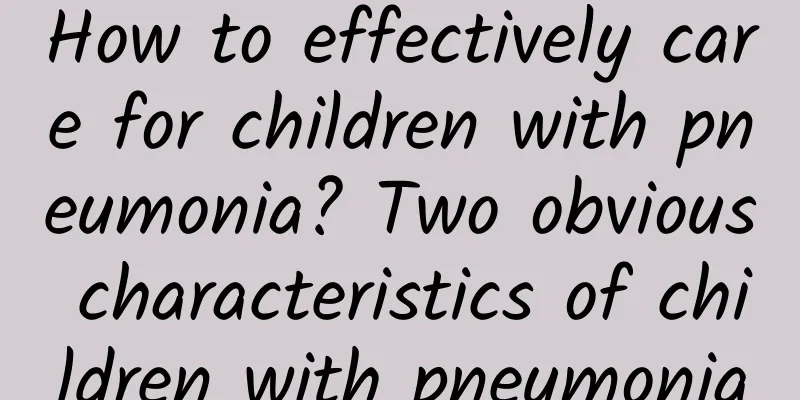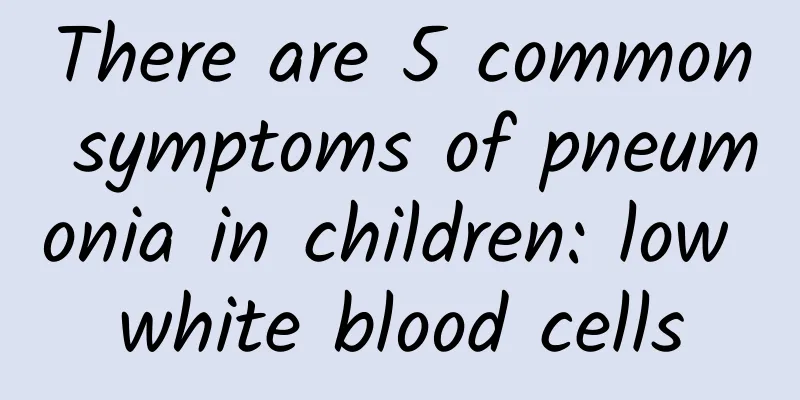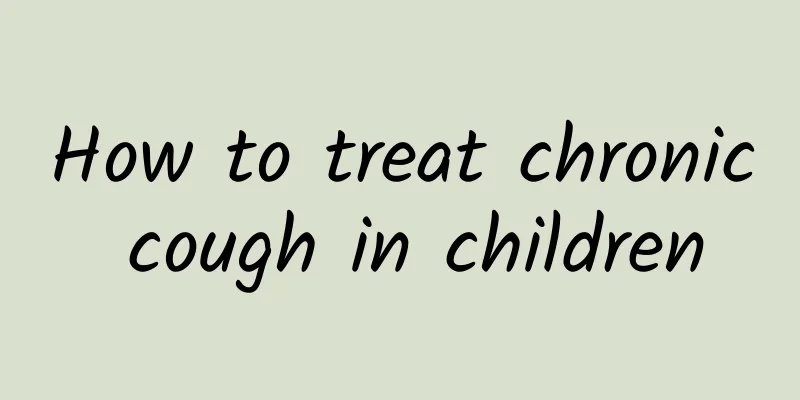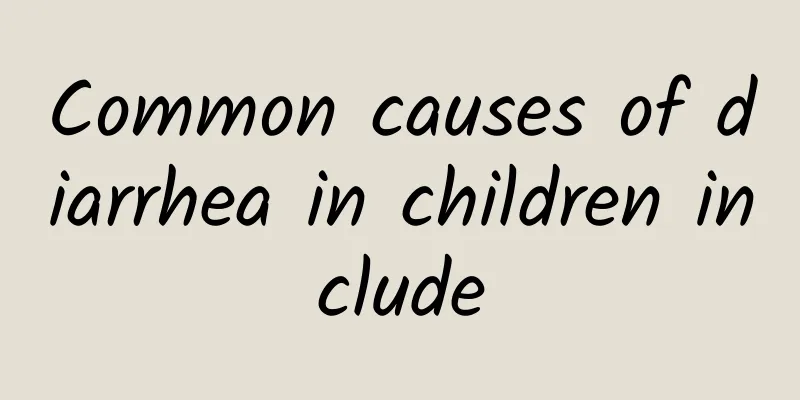How to effectively care for children with pneumonia? Two obvious characteristics of children with pneumonia

|
Infants and young children are prone to respiratory diseases because their body resistance is not very strong. Pediatric pneumonia is one of them. So how should parents take care of them? Typical symptoms of pneumonia in children Coughing and breathing To determine whether the child has pneumonia, it is also necessary to see whether the child has cough, wheezing, and difficulty breathing. Cough and wheezing caused by colds and bronchitis are mostly paroxysmal, and generally do not cause difficulty breathing. If the cough and wheezing are severe, the respiratory rate increases when at rest (i.e., infants under 2 months old have a respiratory rate of ≥60 times/minute; infants 2-12 months old have a respiratory rate of ≥50 times/minute; children 1-5 years old have a respiratory rate of ≥40 times/minute), the nostrils on both sides open one by one, and the lips turn blue or purple. Once the above symptoms appear, it indicates that the condition is serious and should not be delayed. Chest Because children's chest walls are thin, sometimes bubbling sounds can be heard without a stethoscope, so careful parents can listen to their children's chests when they are quiet or asleep. When listening to children's chests, the room temperature must be above 18°C, take off the child's shirt, gently put your ears against the chest wall on both sides of the child's spine, and listen carefully. Children with pneumonia will hear "gurgling" and "gurgling" sounds when they inhale, which doctors call fine bubbling sounds, which are important signs of lung inflammation. Nursing measures for children with pneumonia Care for clearing the respiratory tract (1) Maintain appropriate temperature and humidity in the room and encourage children to drink plenty of water to prevent sputum from becoming thick and difficult to cough up. (2) Help the child to turn over and pat his back. The method is: put the five fingers together, slightly inward, and pat the back from bottom to top and from outside to inside to facilitate the discharge of secretions. Postural drainage can also be performed. (3) Perform ultrasonic nebulization inhalation to dilute sputum and facilitate coughing. If necessary, suction sputum in time to keep the airway open. Enhance nutrition The baby's diet during illness must be properly matched. You must pay attention to supplementing protein, eat more vegetables and fruits, and mainly eat light, easy-to-digest, liquid and semi-liquid food during fever. Let the baby drink more water and juice to replenish water and vitamins. Note that when feeding the baby food or medicine, you should hold the baby up to avoid pouring it directly into the baby's mouth. When feeding, you must pay attention to prevent choking and prevent accidental inhalation of milk into the lungs. It is best to use a small spoon to feed slowly. Don't feed too much at a time, feed more times to prevent vomiting. Diet care: Give liquid food rich in nutrition and vitamins, such as human milk, cow's milk, vegetable juice and fruit juice. Because of high fever, the child's breathing speeds up and loses more water, so more water should be added appropriately. It is not advisable to eat a lot of fat-rich food and spicy and roasted food to avoid heat and phlegm. When feeding, giving water and medicine to children with severe pneumonia, the child should be held in a sloped position, fed frequently in small amounts, and fed after swallowing to prevent accidental aspiration and suffocation, which may cause sudden death. Stay away from the source of disease Avoid contact with patients with respiratory infections as much as possible. In epidemic seasons, you should take your baby to visit less often and try not to go to public places. If someone at home has a cold, you should reduce contact with your baby. |
Recommend
Is jaundice a serious liver disease?
Is jaundice a serious liver disease? If jaundice ...
What are the Chinese medicines for treating children's colds?
Traditional Chinese medicine for treating childre...
How long does it take for newborn jaundice to subside?
Neonatal jaundice can be divided into physiologic...
Which hospital is ranked best for treating pediatric diarrhea?
Which hospital is ranked well for treating pediat...
How to treat malnutrition in children
For children, adequate nutrition is the guarantee...
What should children not eat for acute laryngitis
Acute laryngitis in children is a serious inflamm...
What should children eat to cure cough? How to treat children's cough with diet
Coughing is a very painful thing, and the course ...
Is hand, foot and mouth disease contagious to adults? Can adults be infected with hand, foot and mouth disease?
Children's immunity is generally poor, and ma...
Is Kawasaki disease in children serious? Can it be cured?
Although Kawasaki disease in children may sound s...
How to treat a three-year-old child's cough?
Children have poor resistance. As the weather cha...
Symptoms of jaundice caused by neonatal hepatitis
Symptoms of jaundice caused by neonatal hepatitis...
Can a hernia in a child heal itself without treatment? How to treat a hernia in a child?
The full name of pediatric hernia is pediatric in...
Why do you lose your hair after giving birth? There are two reasons
Most of the severe hair loss after childbirth is ...
Is there a relationship between herpetic pharyngitis and hand, foot and mouth disease?
Herpangina and hand, foot and mouth disease usual...
What is the reason for a child's cough and hemoptysis? What are the diseases that can cause a child to cough and hemoptysis?
When a child coughs up blood, the disease should ...









